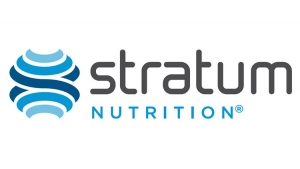By Anne Trias, MS, American River Nutrition03.02.22
Cardiometabolic syndrome, recognized as a disease entity by the World Health Organization, is a complex combination of metabolic and cardiovascular dysfunctions.1,2 Among lifestyle changes such as revamped diets and exercise schedules, dietary supplements provide adjunctive relief for many of the risk factors associated with the syndrome.
Vitamin E—known as a universal antioxidant—has been trialed variously in support of cardiometabolic health, often with conflicting and disappointing results.3 Without regard to its isomeric diversity, many have turned their back on vitamin E and its potential benefits for heart and metabolic health. Emerging clinical research, however, suggests tocotrienols to be far superior to their tocopherol cousins in providing cardiometabolic relief.
Vitamin E Unriddled
Everyone is familiar with vitamin E, but few are aware that the term encompasses an entire family of distinct, albeit related, compounds. Vitamin E in the form of alpha-tocopherol celebrates its 100th birthday in 2022, marking its discovery as an essential component to fetal development a century ago.
Lagging behind its cousin, tocotrienol entered the research field approximately 50 years later, but remained shrouded in mystery until commercialization of the first supplements in the 1990s. Bearing similar molecular structures headed by a chromanol ring, both tocopherols and tocotrienols are potent antioxidants.
What differentiates tocotrienols is a flexible unsaturated farnesyl tail, which has been credited with superior efficacy in a variety of functions. Tocotrienols, like all vitamin E compounds, are fat-soluble and occur naturally in oil-based components of vegetation like seeds and nuts, where the plant utilizes the antioxidant’s radical scavenging properties to fend off stressors such as the sun’s radiating ultraviolet rays.
An example of this type of protection occurs in the annatto plant, one of the prime sources of tocotrienols, and the only one known to provide exclusively delta- and gamma-tocotrienol isomers, thought to be most potent for the majority of applications. Annatto supplies the carotenoid bixin, a prominent natural food colorant, and the tocotrienol synthesized by the plant provides oxidative protection to preserve its color.
Other major sources of tocotrienols include palm and rice bran, but these contain significant amounts of alpha-tocopherol. Sadly, the notion of “the more the merrier” does not apply to mixing of vitamin E isomers, even when they occur together naturally. Research has shown that if alpha-tocopherol contributes more than 10% to the total vitamin E composition, tocotrienol functions and benefits are hampered.4
With palm and rice tocotrienols containing 25-50% of alpha-tocopherol, respectively, it is easy to see why several clinical trials exploring the supplements’ cardiometabolic benefits yielded lackluster results.5-7
Conversely, studies testing tocopherol-free annatto tocotrienol (DeltaGold) achieved significant improvements in patients with cardiometabolic conditions, including cardiovascular disease, prediabetes, diabetes, and fatty liver disease.
Restoring the Heart
Every 36 seconds. That’s how often a person in the U.S. succumbs to heart-related ailments. Heart disease remains the leading cause of death in U.S. adults, with nearly 700,000 deaths annually, and an economic disease burden of $363 billion, according to the CDC. Dysfunctional levels of cholesterol go hand-in-hand with inflammation to increase the risk of cardiovascular disease in an already vulnerable population impacted by stress and obesity.
In the mid-1980s, USDA researchers identified a component with cholesterol-inhibiting properties. Isolated from barley, it soon became known that the hypocholesterolemic compound was tocotrienol, differentiated from tocopherols by only three double bonds in the molecule’s side chain that were essential for the inhibition of cholesterogenesis.8
Tocotrienol’s hypocholesterolemic mechanism was later confirmed in lab tests conducted by then statin-maker Bristol Myers Squibb, as well as researchers at UT Southwestern, which also houses the lab of Nobel Laureates Michael Brown and Joseph Goldstein (famous for discovering the LDL receptor).9,10 Following numerous successful cell line and animal studies, clinical trials were put into motion to confirm annatto tocotrienol’s heart health benefits.
Annatto tocotrienol (DeltaGold) was found to balance dyslipidemia after just 4 weeks in patients with elevated cholesterol levels. Although various doses between 125 mg and 750 mg were tested, daily supplementation with 250 mg was observed to be optimal, and reduced LDL, total cholesterol, and triglycerides by 18%, 15%, and 14%, respectively.11
Dyslipidemia’s silent accomplice in heart disease is a normal immune response turned deviant. Chronic inflammation occurs when the body’s response to fighting foreign invaders transitions to an unrelenting low-grade presence of inflammatory markers that irritate arteries. In a clinical study, annatto tocotrienol was found to tackle chronic inflammation through significant reduction in key inflammatory markers.12 Hypercholesterolemic patients experienced a drop of 40% in C-reactive protein (hs-CRP), with cytokines common in cardiovascular disease—including TNF-alpha and interleukin-6—being downregulated significantly when taking daily supplements of 250 mg tocotrienol (DeltaGold).11,12
Intervening Diabetes
Affecting more than a third of the U.S. population, metabolic syndrome—comprising an array of risk factors that include excess body fat, dyslipidemia, high blood pressure, and sugar imbalances—is indelibly linked to heart disease and type 2 diabetes mellitus (T2DM).
Overlapping with metabolic syndrome is prediabetes, a state of hyperglycemia that is marked by impaired fasting glucose and glucose tolerance, along with glycosylated hemoglobin levels in the range of 5.7-6.4%. A sizable portion of the prediabetes population also has metabolic syndrome, which can be considered a diabetic state, since those with the syndrome have a 5-fold increased risk of developing diabetes.13 Alarmingly, prediabetes has been found to convert to T2DM at an annual rate of 5-10%.14
Tocotrienols, in part due to their sweeping antioxidant and anti-inflammatory properties, are able to address a wide spectrum of metabolic imbalances. In a clinical trial on prediabetic patients with hallmark elevated HbA1c, DeltaGold annatto tocotrienol was able to reduce the sugar-linked biomarker to nearly the normal range at 5.77%.14 Moreover, patients treated with tocotrienols saw a 4.3% improvement in fasting blood glucose, 11.2% decrease in insulin, and a 15.1% reduction in the Homeostatic Model Assessment of Insulin Resistance (HOMA-IR), a method used to quantify insulin resistance. The placebo group had no such decreases, and noticed an increase in HbA1c rather than improvement.14
Beyond prediabetes, T2DM is a condition where cells respond poorly to key sugar regulator insulin, leading to insulin resistance that blocks sugar from entering cells. The resultant high blood sugar levels eventually give rise to serious health conditions, including cardiovascular, kidney, neurological, and eye diseases. Extending its benefits to diabetes, annatto tocotrienol (DeltaGold) was shown to improve glycemic control in two separate clinical trials of patients with T2DM.
One 24-week study followed 110 T2DM patients taking either 250 mg tocotrienol or a placebo, where the supplement caused a significant reduction of HbA1c from 8.3-7.8%.15 The HbA1c threshold at which diabetes complications can be delayed or prevented is 7%. Whereas inflammatory biomarker C-reactive protein (hs-CRP) increased in the placebo group, patients receiving tocotrienols found their CRP levels reduced by 10%. Fasting blood glucose, insulin, and HOMA-IR also decreased by 6.8%, 7.6%, and 13.1%, respectively in the treated group. Furthermore, triglycerides, elevated levels of which often precede hyperglycemia, dropped a significant 10.3% in those taking tocotrienol.15
Higher doses of annatto tocotrienol in T2DM patients work, but are not necessary to elicit a superior response. A similar 24-week study in 120 T2DM patients receiving 500 mg of the supplement or placebo resulted in reductions equal to those of subjects given 250 mg, leading to drops in HbA1c (8.4% to 7.8%), hs-CRP (12%), fasting blood glucose (7%), insulin (9%), and HOMA-IR (14%).16 The study tested additional inflammatory and oxidative stress biomarkers, resulting in 14% and 11% reductions in TNF-alpha and malondialdehyde, respectively.16
Soothing Liver Inflammation
When cardiometabolic syndrome is left untended, rampant triglyceride accumulation and insulin resistance can progress to excess hepatic fat storage, resulting in a condition known as non-alcoholic fatty liver disease (NAFLD). The National Institutes of Health estimates NAFLD to affect 30-40% of U.S. adults; in 20% of patients it can transition to advanced non-alcoholic steatohepatitis (NASH) with complications including liver scarring, cirrhosis, and liver cancer.
In two clinical trials, annatto tocotrienol supplementation produced compelling benefits for NAFLD patients.17,18 In one study, patients received daily supplements of 600 mg annatto tocotrienol for 12 weeks, and in a second study the same dosage was administered for 24 weeks. An unexpected finding of both studies was an observed weight loss of 4.4 kg to 6.8 kg for 12- and 24-week supplementation courses, respectively. In addition, there were significant declines in triglyceride levels (11-13%), C-reactive protein (18-21%), oxidative stress marker malondialdehyde (14-19%), serum amino transferases (15-21%), and fatty liver index score (11-15%).
While both studies measured the basic biomarkers of fatty liver disease, the 24-week trial yielded further results, including benefits for critical adipose tissue hormones adiponectin and leptin. Patients given annatto tocotrienol experienced an increase in adiponectin by 44%, which is indicative of better fatty acid breakdown and glucose control. These patients also saw an 18% drop in leptin, a sign of diminishing inflammation, and a 15% reduction in HOMA-IR.
At the completion of the 24-week trial, patients who received 600 mg annatto tocotrienols were three times as likely to see a 1-degree to 2-degree reduction in hepatic steatosis.18 Although several organizations, including the American Association for the Study of Liver Disease, recognize vitamin E in the form of alpha-tocopherol as a potential short-term treatment option for non-diabetic adults with biopsy-proven NASH, improvements in liver biochemistries and histology are modest.19 Conversely, the notable enhancements of liver biomarkers and steatosis reversal clinically observed with tocotrienol supplementation may set a new standard for vitamin E hepatic benefits.
(Re-)Achieving Prestige
Vitamin E’s reputation has been debated within the scientific community, a sentiment that has been amplified through the lenses of popular and trade media reporting. Educating consumers about the divergence of vitamin E molecules and tocotrienol’s promising functions is a challenging but worthy cause. Captured in multiple clinical trials, tocotrienol’s cardiometabolic benefits truly embody a success story that’s just waiting to be told.
References
Vitamin E—known as a universal antioxidant—has been trialed variously in support of cardiometabolic health, often with conflicting and disappointing results.3 Without regard to its isomeric diversity, many have turned their back on vitamin E and its potential benefits for heart and metabolic health. Emerging clinical research, however, suggests tocotrienols to be far superior to their tocopherol cousins in providing cardiometabolic relief.
Vitamin E Unriddled
Everyone is familiar with vitamin E, but few are aware that the term encompasses an entire family of distinct, albeit related, compounds. Vitamin E in the form of alpha-tocopherol celebrates its 100th birthday in 2022, marking its discovery as an essential component to fetal development a century ago.
Lagging behind its cousin, tocotrienol entered the research field approximately 50 years later, but remained shrouded in mystery until commercialization of the first supplements in the 1990s. Bearing similar molecular structures headed by a chromanol ring, both tocopherols and tocotrienols are potent antioxidants.
What differentiates tocotrienols is a flexible unsaturated farnesyl tail, which has been credited with superior efficacy in a variety of functions. Tocotrienols, like all vitamin E compounds, are fat-soluble and occur naturally in oil-based components of vegetation like seeds and nuts, where the plant utilizes the antioxidant’s radical scavenging properties to fend off stressors such as the sun’s radiating ultraviolet rays.
An example of this type of protection occurs in the annatto plant, one of the prime sources of tocotrienols, and the only one known to provide exclusively delta- and gamma-tocotrienol isomers, thought to be most potent for the majority of applications. Annatto supplies the carotenoid bixin, a prominent natural food colorant, and the tocotrienol synthesized by the plant provides oxidative protection to preserve its color.
Other major sources of tocotrienols include palm and rice bran, but these contain significant amounts of alpha-tocopherol. Sadly, the notion of “the more the merrier” does not apply to mixing of vitamin E isomers, even when they occur together naturally. Research has shown that if alpha-tocopherol contributes more than 10% to the total vitamin E composition, tocotrienol functions and benefits are hampered.4
With palm and rice tocotrienols containing 25-50% of alpha-tocopherol, respectively, it is easy to see why several clinical trials exploring the supplements’ cardiometabolic benefits yielded lackluster results.5-7
Conversely, studies testing tocopherol-free annatto tocotrienol (DeltaGold) achieved significant improvements in patients with cardiometabolic conditions, including cardiovascular disease, prediabetes, diabetes, and fatty liver disease.
Restoring the Heart
Every 36 seconds. That’s how often a person in the U.S. succumbs to heart-related ailments. Heart disease remains the leading cause of death in U.S. adults, with nearly 700,000 deaths annually, and an economic disease burden of $363 billion, according to the CDC. Dysfunctional levels of cholesterol go hand-in-hand with inflammation to increase the risk of cardiovascular disease in an already vulnerable population impacted by stress and obesity.
In the mid-1980s, USDA researchers identified a component with cholesterol-inhibiting properties. Isolated from barley, it soon became known that the hypocholesterolemic compound was tocotrienol, differentiated from tocopherols by only three double bonds in the molecule’s side chain that were essential for the inhibition of cholesterogenesis.8
Tocotrienol’s hypocholesterolemic mechanism was later confirmed in lab tests conducted by then statin-maker Bristol Myers Squibb, as well as researchers at UT Southwestern, which also houses the lab of Nobel Laureates Michael Brown and Joseph Goldstein (famous for discovering the LDL receptor).9,10 Following numerous successful cell line and animal studies, clinical trials were put into motion to confirm annatto tocotrienol’s heart health benefits.
Annatto tocotrienol (DeltaGold) was found to balance dyslipidemia after just 4 weeks in patients with elevated cholesterol levels. Although various doses between 125 mg and 750 mg were tested, daily supplementation with 250 mg was observed to be optimal, and reduced LDL, total cholesterol, and triglycerides by 18%, 15%, and 14%, respectively.11
Dyslipidemia’s silent accomplice in heart disease is a normal immune response turned deviant. Chronic inflammation occurs when the body’s response to fighting foreign invaders transitions to an unrelenting low-grade presence of inflammatory markers that irritate arteries. In a clinical study, annatto tocotrienol was found to tackle chronic inflammation through significant reduction in key inflammatory markers.12 Hypercholesterolemic patients experienced a drop of 40% in C-reactive protein (hs-CRP), with cytokines common in cardiovascular disease—including TNF-alpha and interleukin-6—being downregulated significantly when taking daily supplements of 250 mg tocotrienol (DeltaGold).11,12
Intervening Diabetes
Affecting more than a third of the U.S. population, metabolic syndrome—comprising an array of risk factors that include excess body fat, dyslipidemia, high blood pressure, and sugar imbalances—is indelibly linked to heart disease and type 2 diabetes mellitus (T2DM).
Overlapping with metabolic syndrome is prediabetes, a state of hyperglycemia that is marked by impaired fasting glucose and glucose tolerance, along with glycosylated hemoglobin levels in the range of 5.7-6.4%. A sizable portion of the prediabetes population also has metabolic syndrome, which can be considered a diabetic state, since those with the syndrome have a 5-fold increased risk of developing diabetes.13 Alarmingly, prediabetes has been found to convert to T2DM at an annual rate of 5-10%.14
Tocotrienols, in part due to their sweeping antioxidant and anti-inflammatory properties, are able to address a wide spectrum of metabolic imbalances. In a clinical trial on prediabetic patients with hallmark elevated HbA1c, DeltaGold annatto tocotrienol was able to reduce the sugar-linked biomarker to nearly the normal range at 5.77%.14 Moreover, patients treated with tocotrienols saw a 4.3% improvement in fasting blood glucose, 11.2% decrease in insulin, and a 15.1% reduction in the Homeostatic Model Assessment of Insulin Resistance (HOMA-IR), a method used to quantify insulin resistance. The placebo group had no such decreases, and noticed an increase in HbA1c rather than improvement.14
Beyond prediabetes, T2DM is a condition where cells respond poorly to key sugar regulator insulin, leading to insulin resistance that blocks sugar from entering cells. The resultant high blood sugar levels eventually give rise to serious health conditions, including cardiovascular, kidney, neurological, and eye diseases. Extending its benefits to diabetes, annatto tocotrienol (DeltaGold) was shown to improve glycemic control in two separate clinical trials of patients with T2DM.
One 24-week study followed 110 T2DM patients taking either 250 mg tocotrienol or a placebo, where the supplement caused a significant reduction of HbA1c from 8.3-7.8%.15 The HbA1c threshold at which diabetes complications can be delayed or prevented is 7%. Whereas inflammatory biomarker C-reactive protein (hs-CRP) increased in the placebo group, patients receiving tocotrienols found their CRP levels reduced by 10%. Fasting blood glucose, insulin, and HOMA-IR also decreased by 6.8%, 7.6%, and 13.1%, respectively in the treated group. Furthermore, triglycerides, elevated levels of which often precede hyperglycemia, dropped a significant 10.3% in those taking tocotrienol.15
Higher doses of annatto tocotrienol in T2DM patients work, but are not necessary to elicit a superior response. A similar 24-week study in 120 T2DM patients receiving 500 mg of the supplement or placebo resulted in reductions equal to those of subjects given 250 mg, leading to drops in HbA1c (8.4% to 7.8%), hs-CRP (12%), fasting blood glucose (7%), insulin (9%), and HOMA-IR (14%).16 The study tested additional inflammatory and oxidative stress biomarkers, resulting in 14% and 11% reductions in TNF-alpha and malondialdehyde, respectively.16
Soothing Liver Inflammation
When cardiometabolic syndrome is left untended, rampant triglyceride accumulation and insulin resistance can progress to excess hepatic fat storage, resulting in a condition known as non-alcoholic fatty liver disease (NAFLD). The National Institutes of Health estimates NAFLD to affect 30-40% of U.S. adults; in 20% of patients it can transition to advanced non-alcoholic steatohepatitis (NASH) with complications including liver scarring, cirrhosis, and liver cancer.
In two clinical trials, annatto tocotrienol supplementation produced compelling benefits for NAFLD patients.17,18 In one study, patients received daily supplements of 600 mg annatto tocotrienol for 12 weeks, and in a second study the same dosage was administered for 24 weeks. An unexpected finding of both studies was an observed weight loss of 4.4 kg to 6.8 kg for 12- and 24-week supplementation courses, respectively. In addition, there were significant declines in triglyceride levels (11-13%), C-reactive protein (18-21%), oxidative stress marker malondialdehyde (14-19%), serum amino transferases (15-21%), and fatty liver index score (11-15%).
While both studies measured the basic biomarkers of fatty liver disease, the 24-week trial yielded further results, including benefits for critical adipose tissue hormones adiponectin and leptin. Patients given annatto tocotrienol experienced an increase in adiponectin by 44%, which is indicative of better fatty acid breakdown and glucose control. These patients also saw an 18% drop in leptin, a sign of diminishing inflammation, and a 15% reduction in HOMA-IR.
At the completion of the 24-week trial, patients who received 600 mg annatto tocotrienols were three times as likely to see a 1-degree to 2-degree reduction in hepatic steatosis.18 Although several organizations, including the American Association for the Study of Liver Disease, recognize vitamin E in the form of alpha-tocopherol as a potential short-term treatment option for non-diabetic adults with biopsy-proven NASH, improvements in liver biochemistries and histology are modest.19 Conversely, the notable enhancements of liver biomarkers and steatosis reversal clinically observed with tocotrienol supplementation may set a new standard for vitamin E hepatic benefits.
(Re-)Achieving Prestige
Vitamin E’s reputation has been debated within the scientific community, a sentiment that has been amplified through the lenses of popular and trade media reporting. Educating consumers about the divergence of vitamin E molecules and tocotrienol’s promising functions is a challenging but worthy cause. Captured in multiple clinical trials, tocotrienol’s cardiometabolic benefits truly embody a success story that’s just waiting to be told.
References
- Castro, J.P., et al., Cardiometabolic syndrome: pathophysiology and treatment. Curr Hypertens Rep, 2003. 5(5): p. 393-401.
- Srivastava, A.K., Challenges in the treatment of cardiometabolic syndrome. Indian J Pharmacol, 2012. 44(2): p. 155-6.
- Ziegler, M., et al., Cardiovascular and Metabolic Protection by Vitamin E: A Matter of Treatment Strategy? Antioxidants (Basel), 2020. 9(10).
- Trias, AM and Tan, B. Alpha-Tocopherol: A Detriment to Tocotrienol Benefits, in Tocotrienols: Vitamin E Beyond Tocopherols, 2nd ed., B. Tan, R. Watson, and V. Preedy, Editors. 2013, CRC Press: Boca Raton. p. 61-78.
- Heng, K.S., et al., Potential of mixed tocotrienol supplementation to reduce cholesterol and cytokines level in adults with metabolic syndrome. Mal J Nutr, 2015. 22(2): p. 231-243.
- Ng, Y.T., et al., The Effects of Tocotrienol-Rich Vitamin E (Tocovid) on Diabetic Neuropathy: A Phase II Randomized Controlled Trial. Nutrients, 2020. 12(5).
- Chuar, P.F., et al., Tocotrienol-Rich Vitamin E (Tocovid) Improved Nerve Conduction Velocity in Type 2 Diabetes Mellitus Patients in a Phase II Double-Blind, Randomized Controlled Clinical Trial. Nutrients, 2021. 13(11).
- Qureshi, A.A., et al., The structure of an inhibitor of cholesterol biosynthesis isolated from barley. J Biol Chem, 1986. 261(23): p. 10544-50.
- Pearce, B.C., et al., Hypocholesterolemic activity of synthetic and natural tocotrienols. J Med Chem, 1992. 35(20): p. 3595-606.
- Song, B.L. and R.A. DeBose-Boyd, Insig-dependent ubiquitination and degradation of 3-hydroxy-3-methylglutaryl coenzyme a reductase stimulated by delta- and gamma-tocotrienols. J Biol Chem, 2006. 281(35): p. 25054-61.
- Qureshi, A.A., et al., Dose-dependent modulation of lipid parameters, cytokines, and RNA by delta-tocotrienol in hypercholesterolemic subjects restricted to AHA Step-1 diet. Brit J of Med & Med Res, 2015. 6(4): p. 351-366.
- Qureshi, A.A., et al., Impact of delta-tocotrienol on inflammatory biomarkers and oxidative stress in hypercholesterolemic subjects. Clin. Exp. Cardiology, 2015. 6(4): p. 1000367.
- Grundy, S.M., Pre-diabetes, metabolic syndrome, and cardiovascular risk. J Am Coll Cardiol, 2012. 59(7): p. 635-43.
- Suleman, F., et al., Effects of delta-tocotrienol supplementation on glycaemic control in individuals with prediabetes: A randomized controlled study. J Pak Med Assoc, 2022. 72(1): p. 4-7.
- Mahjabeen, W., et al., Effects of delta-tocotrienol supplementation on Glycemic Control, oxidative stress, inflammatory biomarkers and miRNA expression in type 2 diabetes mellitus: A randomized control trial. Phytother Res, 2021.
- Qureshi, A.A., et al., A Novel Mixture of δ-Tocotrienol, Vitamin D3, Resveratrol (NS-3) Significantly Decreases Diabetes Biomarkers Including Inflammatory in People with Type 2 Diabetes. J Diab Clin Stud, 2021. 5(1).
- Pervez, M.A., et al., Effects of Delta-tocotrienol Supplementation on Liver Enzymes, Inflammation, Oxidative stress and Hepatic Steatosis in Patients with Nonalcoholic Fatty Liver Disease. Turk J Gastroenterol, 2018. 29(2): p. 170-176.
- Pervez, M.A., et al., Delta-tocotrienol supplementation improves biochemical markers of hepatocellular injury and steatosis in patients with nonalcoholic fatty liver disease: A randomized, placebo-controlled trial. Comp Ther Med, 2020. 52: p. 102494.
- El Hadi, H., R. Vettor, and M. Rossato, Vitamin E as a Treatment for Nonalcoholic Fatty Liver Disease: Reality or Myth? Antioxidants (Basel), 2018. 7(1).



























